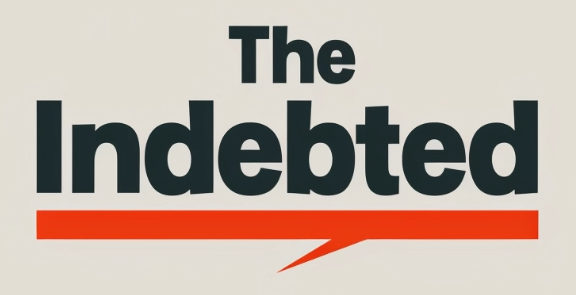If you’re in debt, you may feel like you’re alone and that there’s no one who can help you. However, that’s not the case. There are many resources available to help you get out of debt and improve your financial situation. One of the most important things you can do is to ask for help.
Debt can be incredibly stressful and can have a negative impact on your mental health. It’s easy to feel overwhelmed and like you’re never going to be able to get out of debt. However, asking for help can make a big difference. Whether you talk to a financial advisor, a credit counselor, or a friend or family member, getting support can help you feel less alone and more empowered to take control of your finances.
It’s important to remember that asking for help is not a sign of weakness. In fact, it’s a sign of strength. Recognizing that you need help and taking steps to get it can be a difficult but important first step in improving your financial situation. So don’t be afraid to reach out and ask for help when you need it.
Understanding Your Debt
When it comes to managing debt, the first step is to understand what you owe and to whom. This means taking stock of all your loans, credit cards, and other forms of debt.
Types of Debt
There are many types of debt, including credit card debt, student loans, and mortgages. Credit card debt is typically the most expensive, with interest rates that can exceed 20%. Student loans and mortgages typically have lower interest rates, but can still add up quickly.
Interest Rates and APR
When you borrow money, you are charged interest, which is a percentage of the amount you borrowed. The interest rate is the annual percentage rate (APR) that you are charged for borrowing the money. The higher the interest rate, the more you will pay in interest over time.
The Impact on Your Credit Score
Your credit score is a measure of your creditworthiness, and is based on a number of factors, including your payment history, credit utilization, and length of credit history. When you have debt, it can impact your credit score in a number of ways. Late payments, missed payments, and high credit utilization can all lower your credit score.
To improve your credit score, it’s important to make your payments on time and to keep your credit utilization low. If you are struggling to make your payments, it’s important to reach out to your creditors and ask for help. Many creditors offer hardship programs that can help you get back on track.
In summary, understanding your debt is the first step to managing it effectively. By knowing what you owe, what your interest rates are, and how your debt impacts your credit score, you can make informed decisions about how to pay it off and improve your financial situation.
Creating a Manageable Payment Plan
When you’re in debt, creating a manageable payment plan is key to getting back on track. Here are some tips to help you create a payment plan that works for you:
Budgeting for Debt Repayment
The first step in creating a payment plan is to take a hard look at your budget. Determine how much you can realistically afford to pay each month towards your debt. Be sure to include all of your expenses, including rent/mortgage, utilities, groceries, and other bills. Once you have a clear picture of your budget, you can start to allocate funds towards debt repayment.
Prioritizing High-Interest Debt
When creating a payment plan, it’s important to prioritize high-interest debt. High-interest debt can quickly spiral out of control, so it’s important to pay it down as quickly as possible. Make sure you’re making more than the minimum payments on high-interest debt each month. If possible, consider transferring high-interest debt to a lower interest rate credit card or loan.
Negotiating with Creditors
If you’re struggling to make your monthly payments, don’t be afraid to reach out to your creditors. Many creditors are willing to work with you to create a more manageable payment plan. They may be willing to lower your interest rate, waive late fees, or even reduce your overall balance. It’s important to be honest and upfront with your creditors about your financial situation.
By following these tips, you can create a payment plan that works for you and helps you get out of debt. Remember, it’s important to be consistent and disciplined with your payments. Stick to your payment plan and you’ll be on your way to financial freedom.
The Psychological Benefits of Seeking Help
When you’re in debt, it can be easy to feel overwhelmed and alone. However, seeking help can have numerous psychological benefits that can make the process of getting out of debt easier and less stressful. In this section, I will discuss the benefits of seeking help when you’re in debt.
Reducing Financial Stress
One of the main benefits of seeking help when you’re in debt is that it can help reduce financial stress. When you’re in debt, it can be easy to feel like you’re drowning in bills and payments. This can lead to feelings of anxiety and stress, which can have a negative impact on your mental health. However, seeking help from a financial advisor or therapist can help you develop a plan to pay off your debt and reduce your financial stress. By working with a professional, you can create a budget, set financial goals, and develop a plan to achieve those goals.
Improving Self-Worth and Mental Health
Another benefit of seeking help when you’re in debt is that it can improve your self-worth and mental health. When you’re in debt, it’s easy to feel like a failure or like you’ve made a mistake. However, seeking help can help you realize that you’re not alone and that there are solutions to your problems. By working with a financial advisor or therapist, you can develop a plan to get out of debt and improve your financial situation. This can help boost your self-worth and improve your mental health.
In conclusion, seeking help when you’re in debt can have numerous psychological benefits, including reducing financial stress and improving self-worth and mental health. If you’re struggling with debt, don’t be afraid to reach out to a financial advisor or therapist for help. They can provide you with the support and guidance you need to get back on track and achieve your financial goals.
Leveraging Professional and Nonprofit Resources
When you’re in debt, it’s important to know that you’re not alone. There are many resources available to help you get back on track. In this section, I’ll discuss two types of resources that can be particularly helpful: credit counseling services and debt management programs.
Credit Counseling Services
Credit counseling services are nonprofit organizations that can help you manage your debt. They offer a range of services, including financial education, budgeting assistance, and debt management plans. The goal of credit counseling is to help you regain control of your finances and improve your credit score.
One of the benefits of working with a credit counseling service is that they can negotiate with your creditors on your behalf. This can help you lower your interest rates, waive fees, and reduce your monthly payments. In addition, credit counseling services can provide you with a clear roadmap for paying off your debt.
Debt Management Programs
Debt management programs are another option for those struggling with debt. These programs are typically offered by nonprofit organizations and can help you consolidate your debt into one monthly payment. The organization will work with your creditors to negotiate lower interest rates and fees, which can help you save money in the long run.
One of the benefits of debt management programs is that they can help you avoid bankruptcy. Bankruptcy can have a devastating impact on your credit score and can make it difficult to get approved for credit in the future. By working with a debt management program, you can avoid bankruptcy and get back on track financially.
In summary, credit counseling services and debt management programs are two valuable resources that can help you manage your debt. They can provide you with the tools and support you need to regain control of your finances and improve your credit score. If you’re struggling with debt, I encourage you to explore these options and find the one that’s right for you.
Long-Term Financial Health and Goals
As I work towards improving my financial situation, I realize that setting long-term financial goals is essential. Having a clear idea of where I want to be financially in the future helps me stay motivated and focused. In this section, I will discuss some of the steps I am taking to achieve long-term financial health.
Building an Emergency Fund
One of the first things I did was to build an emergency fund. This fund is meant to cover unexpected expenses such as medical bills, car repairs, or job loss. I set a goal to save at least six months’ worth of living expenses in this fund. To achieve this goal, I created a budget and started saving a portion of my income each month. I also made sure to keep my emergency fund in a separate account, so I am not tempted to use it for other purposes.
Setting and Achieving Financial Goals
Setting financial goals is crucial to making progress towards long-term financial health. I started by creating a list of short-term and long-term goals. Short-term goals include paying off credit card debt, while long-term goals include saving for a down payment on a house. To achieve these goals, I created a plan that includes specific actions, timelines, and milestones. I also track my progress regularly to make sure I am on track.
Planning for Retirement Savings
Planning for retirement savings is another important aspect of long-term financial health. I started by calculating how much I need to save each month to meet my retirement goals. I also researched different retirement savings options such as 401(k)s and IRAs. I chose a retirement plan that suits my needs and started contributing to it regularly. I also made sure to review my retirement plan regularly to ensure that I am on track to meet my goals.
In conclusion, achieving long-term financial health requires setting goals, building an emergency fund, and planning for retirement savings. By taking these steps, I am confident that I will achieve my financial goals and improve my financial situation.





